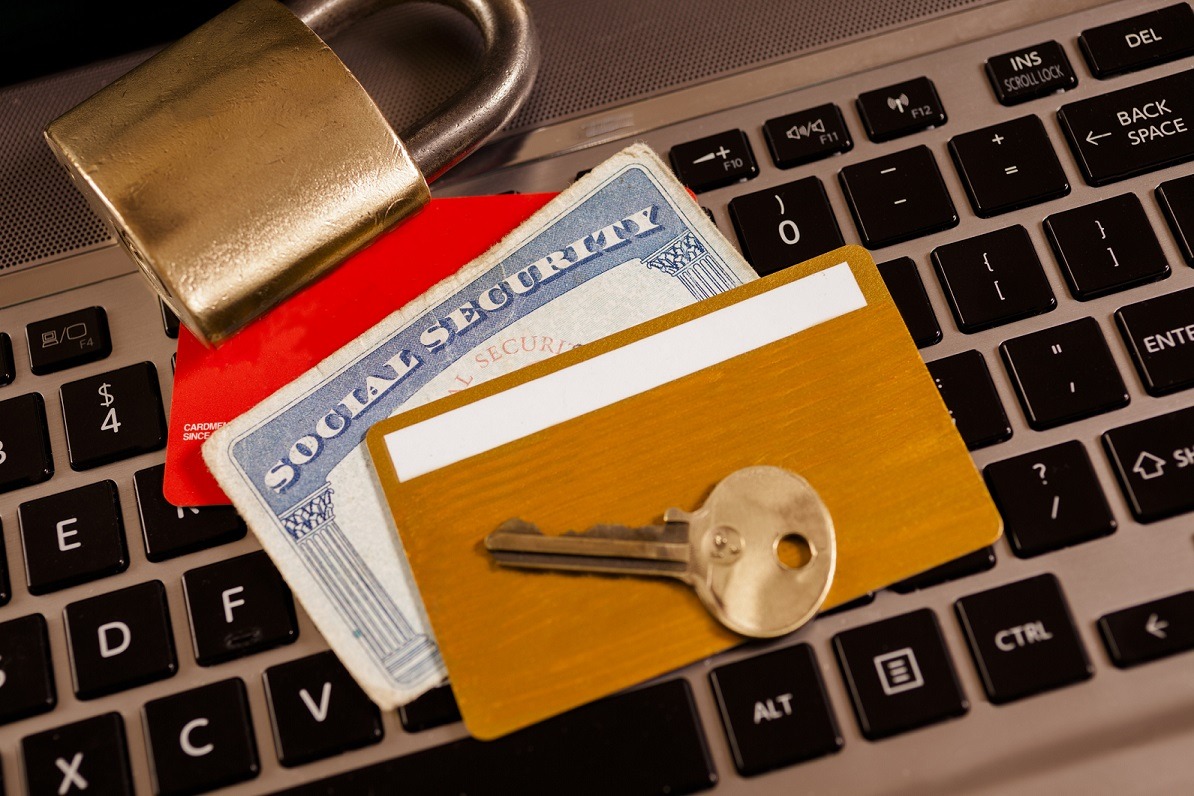Protect Yourself from Identity Theft

For a thief determined to gain access to your identity, the world is filled with opportunity. With the growth of universal connectivity, most people juggle multiple accounts, credit cards, and online activities; without diligent attention, each one presents a doorway to identity crime.
Like the doors to your home, you don’t need to leave them standing open. In fact, without too much trouble you can make your accounts, your security, and your identity, much less vulnerable to theft.
In our earlier post on identity theft, we listed some of the most likely places thieves can gain access to your information. Here’s that list again, with some actions that can help lower your risk:
- Wallet/purse/passport. When you shop, sit in restaurants, move in large crowds, or travel, keep these items safe, and don’t carry credit cards or identity documents you don’t need.
- Mail. Collect your mail from the mailbox as soon as possible. If you are going to be away from home, put your mail on hold or have someone collect it regularly. If you notice a bill is missing (or if you’re being billed for something you didn’t purchase), follow up with the company and, if necessary, the police. If you have young children, watch for suspect mail, such as bills, that might indicate your child’s identity has been compromised.
- Social Security number. Do not carry your Social Security card; keep it in a safe place. Avoid giving out your number on the phone or by email. Provide it on documents only when it is absolutely necessary (many forms have a place for Social Security number, but don’t actually require it). If you are discarding documents that have your SSN on them, shred them first.
- Medical records. Medical information is a goldmine for identity thieves and those intent on creating havoc. Ask your physician’s office how they protect medical records. Check billing and insurance claims very carefully, and question any charges you don’t understand. For more extensive details on this subject, see the Federal Trade Commission’s page on Medical Identity Theft.
- Passwords. Most people have so many accounts that they use simple, obvious passwords – over and over again. A strong password may be the only thing standing between you and an identity thief. Consider enrolling in a password manager with encryption service that will keep track of all your passwords and generate strong new ones for your accounts. Never give out your passwords.
- Email. As personal as it may feel, your email is not private. It lives on and on, complete with deleted messages. Use a strong email password, and be vigilant about what kind of information you send. If possible, avoid using open networks and public computers when you travel. Don’t open or respond to suspicious email, spam, or pop-up messages.
- Phone. Identity thieves frequently pose as legitimate businesses in order to get you to supply your identifying information over the phone. They may say they are from a bank, the police, a credit card company, or collection agency. They may say they have a delivery or that you’ve won a prize. Do not give your personal information to anyone who calls to ask for it. Use a strong password on your cell phone.
- Social media. People readily share birthdates, marriage dates, addresses, family and spouse names, vacation dates (when they’ll be away from home) and all sorts of other personal information on social media. Be discreet. Limit the amount of data you include, and don’t over-share. (For a surprising look at how little it takes to get people to reveal information, have a look at this 2014 article from ProPublica.)
- Public or private conversations. Like email, private conversations in public places can be overheard and information misused.
- ATM cards and codes. As you enter your PIN code with one hand, cover the keypad with the other, so someone standing nearby (or watching from across the street) can’t see your fingers on the keys. Don’t share your PIN.
- Trash. Shred personal documents such as bank statements, tax documents, or anything with your Social Security number. If you get credit card offers, shred your identifying information.
Computer operating systems and software are continually updated with more sophisticated protections – but they only work if you download and install them!
Finally, be diligent about checking your bank statements, credit card bills, and credit reports. Look for unusual expenditures or withdrawals. Request a copy of your credit report each year, and look it over carefully.
To learn more, consider watching the Sente Mortgage financial learning online module. It offers step-by-step, easy to understand guided learning about consumer fraud and identity theft.
And, of course, if you have questions about your credit report or your borrowing options, our Sente Mortgage loan officers are here to help!
